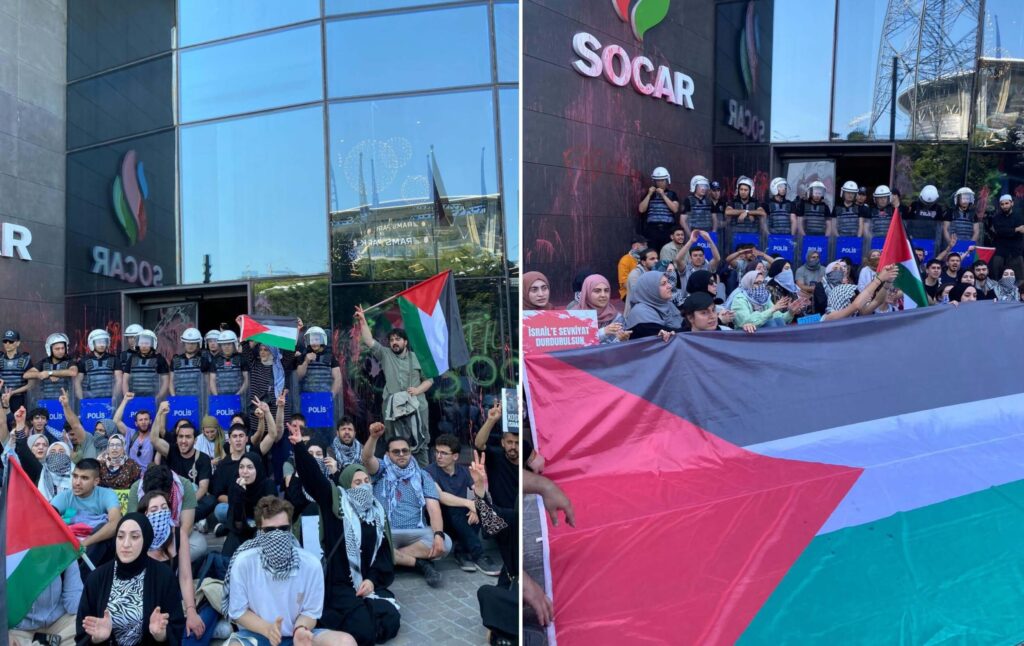Azerbaijan’s state-run SOCAR oil and gas company is planning to establish new petrochemical facilities worth $7 billion in Turkey amid rising criticism of the firm in Turkey and beyond due to its supply of oil to Israel, the state-run Anadolu news agency and Reuters reported.
Kanan Mirzayev, the head of SOCAR Turkey’s refining and petrochemicals division, announced at a news conference in İstanbul on Monday that his company plans to establish several new polyolefin production facilities to expand the capacity of its Petkim unit, which is expected to reduce Turkey’s reliance on imported petrochemical products.
Mirzayev said a detailed front-end engineering design (FEED) for the facilities will be prepared in 2025-2026, requiring around $50 million in initial investment. He said the decision for the investment was made at a December board meeting and that the project is expected to be implemented over the next five to 10 years.
“Turkey imports up to 90 percent of its polyolefins. This initiative will reduce dependence on imports and boost SOCAR Turkey’s revenues,” Mirzayev said.
A final investment decision is expected by the end of 2026.
Petkim, founded nearly 60 years ago, became wholly owned by SOCAR in 2008 after the Azerbaijani energy firm acquired a controlling stake for $2.04 billion. The unit operates 16 production plants and, in 2024, produced 2 million metric tons of petrochemicals, meeting 11 percent of Turkey’s domestic demand.
According to Elchin Ibadov, CEO of SOCAR’s Turkey unit, SOCAR is the largest foreign investor in Turkey, having invested about $18.5 billion over the past 17 years. He said the company provides employment to 10,000 people in Turkey directly and indirectly.
SOCAR’s new investment plans in Turkey come at a time of mounting criticism on the company due to its oil trade with Israel, which faces protests over its ongoing war in Gaza that has thus far claimed the lives of more than 45,000 people, mostly civilians.
Turkish President Recep Tayyip Erdoğan, who enjoys a close relation with Azerbaijani President Ilham Aliyev, is accused of allowing continuation of trade with Israel in contradiction of his pro-Palestinian rhetoric. Critics say the trade with Israel and the supply of oil to the country enable Israel’s military operations in Gaza. Protestors accuse SOCAR of playing a key role in facilitating these transactions.
Israel launched a military campaign in Gaza following a Hamas’ attack on Israel on October 7, 2023 that resulted in the death of 1,206 people and the taking of some 250 hostages.
Reports have revealed continued shipments of crude oil from Turkey’s Ceyhan port to Israel, despite a trade embargo announced in May. Investigations by advocacy groups such as Stop Fueling Genocide have tracked oil tankers reportedly rerouting shipments to Israel through intermediary destinations.
The Baku-Tbilisi-Ceyhan (BTC) pipeline transports Azerbaijani oil to the Mediterranean via Turkey. It has become an important energy supply route for Israel, accounting for a large share of its crude oil imports. Despite Turkey’s public stance against Israel’s policy in Gaza, oil supplies have continued to flow through the BTC pipeline, in which SOCAR is a major player.
Last year pro-Palestinian activists raided the offices of SOCAR in İstanbul, accusing the company of funding Israel’s “genocide” in Gaza.

